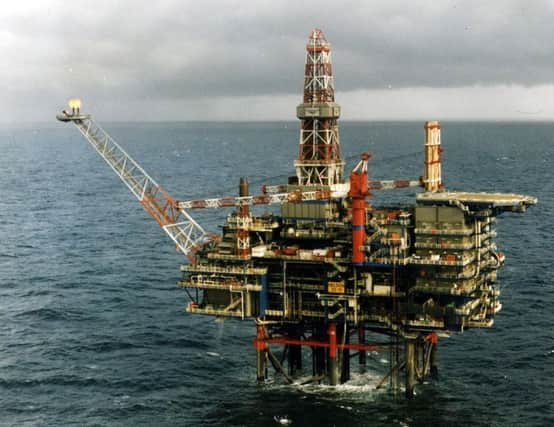How has oil price slump hit the North-east?


The drop in oil price is being felt at the doors of many as companies cut costs, lay off staff and trim down their business as a barrel of Brent crude drops to around $40.
It fell from $115 a barrel in June last year to $45 a barrel in January.
Advertisement
Hide AdAdvertisement
Hide AdIt is estimated that 65,000 jobs linked to the North Sea industry have gone since then, with more losses expected.


And with the regional economy so tightly aligned to oil and gas production, a climate of restraint has settled over the North-east.
Slumps in the oil price during the mid 1980s and mid 1990s led to similar challenges.
Many believe that the industry is weathering this particular storm better than before with a new realism taking root.
Vast amounts of work are also being done to secure a more diverse economy as the North Sea boom years fade.
HOUSING
Aberdeen bounced back from the 2008 credit crunch and housing market freeze quicker than the rest of Scotland. At its peak during 2013 the North-east accounted for around one in eight residential property sales in Scotland.
However, the number of residential property sales in Aberdeen and Aberdeenshire has declined steadily relative to the rest of the country since last year.
Now, its share of Scotland’s residential property sales is currently at its lowest since 2008.
Advertisement
Hide AdAdvertisement
Hide AdProperty experts claim that the Scottish Government’s Land and Buildings Transaction Tax led to a rush of larger properties on to the market in late 2013 and early 2014 – contributing to a slowdown in market activity today.
House prices sit way above the national average at £216,191 but values have fallen by 2.2 per cent over the year, compared to the national average drop of 0.5 per cent.
CAR SALES
Aberdeen – or oil city – loves the motor car but figures from the the Society of Motor Manufacturers and Traders Limited show that sales have slipped away in the North-east.
By December 2014, there were 19,305 new cars registered in Aberdeen City and Aberdeenshire. However, the year-to-date figure for 2015 shows a 9.7 per cent drop in sales – or 1,873 fewer cars being purchased.
PLANNING APPLICATIONS
The number of people wanting to alter or build new property to live or work in has fallen in the North-east.
The number of applications fell by 4 per cent in Aberdeenshire between May and July and 1.1 per cent in Aberdeen City over the same period in Aberdeenshire.
The first two weeks of August show “significant declines” compared to the same period in 2014, a report to Scottish Parliament said.
LABOUR MARKET: THOSE WITH WORK, THOSE WITHOUT
Aberdeenshire has the third lowest unemployment rate in Scotland, at 0.8 per cent, with joblessness in Aberdeen affecting less than 2 per cent of the population.
Advertisement
Hide AdAdvertisement
Hide AdHowever, a rise in the number of those seeking Job Seekers Allowance (JSA) has been recorded.
Until the start of 2015, the number of JSA claimants in Aberdeen and Aberdeenshire was decreasing over the year at a higher rate than Scotland. Since May, both Aberdeen and Aberdeenshire have seen an annual increase in the number of claimants.
Figures show that 521 more people in Aberdeen claimed Job Seeker’s Allowance this year compared with last year, with 2,245 claimants in the city. Most new claimants are aged between 18 and 34.
THE WAY AHEAD?
It is predicted that oil and gas extraction could continue on the UK Continental Shelf beyond 2040. Oil & Gas UK believes some 15 to 24 billion barrels of oil equivalent are left in the North Sea. However, just over seven billion will come from known reserves with the body claiming investment in oil and gas projects could drop as much as 80 per cent by 2017.
It has been predicted by one analyst that 140 fields will stop producing over the next five years.
Major work is ongoing to break the hold of the finite industry on the economy.
Aberdeenshire and Aberdeen City are working to attract up to £3bn of City Deal funding to improve transport links and infrastructure in the North-east to improve it as a centre for business, research and innovation.